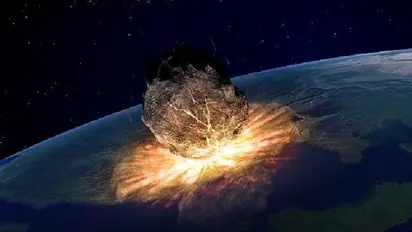96-foot Asteroid 2022 QC, airplane sized, to fly by Earth on August 20

Synopsis
With the recent flyby of asteroid 2022 PC on August 18, now another asteroid is to follow its path. On August 20, which is tomorrow, asteroid 2022 QC will be approaching the Earth.
The number of asteroids passing by Earth has grown recently. Even while asteroids of all sizes are present worldwide and occasionally brush against Earth, the number of close encounters has been increasing. Another asteroid will soon follow the course of asteroid 2022 PC, which recently passed by on August 18 in a flyby. Asteroid 2022 QC will be close to Earth tomorrow, August 20, as it makes its closest approach.
This specific asteroid, 2022 QC, belongs to the Apollo group and was very recently identified on August 6, 2022. A full circle around the Sun takes 1365 days. In terms of size, 2022 QC, which is now 1.8 million kilometres from Earth, is as huge as an airliner at an estimated 96 feet in length. However, the asteroid 2022 QC, which will pass by Earth on August 20 at a distance of 998 000 kilometres and a speed of 64800 kilometres per hour, offers no threat.
Also Read | 1,600-feet asteroid, bigger than Empire State Building, heading towards Earth
Even if we frequently avoid being struck by asteroids, humanity should nevertheless consider planetary defence. In the end, prevention is always preferable to treatment. After then, NASA will begin its DART mission, the results of which we will be able to view on September 26 of this year. In order to divert an asteroid from its intended course, NASA is sending a spacecraft directly into its core as part of the DARTmission project for planetary protection.
Asteroids are frequent Near Earth Objects (NEOs), but they are always being observed to get a bigger picture of them and other celestial objects like them. According to NASA, there aren't any chances of a life-threatening asteroid striking Earth for a while, but 2030 will be an exciting year when the enormous asteroid Apophis makes a near approach to our planet.
Also Read | Artemis III: NASA to announce sites on Moon's South Pole where humans will land